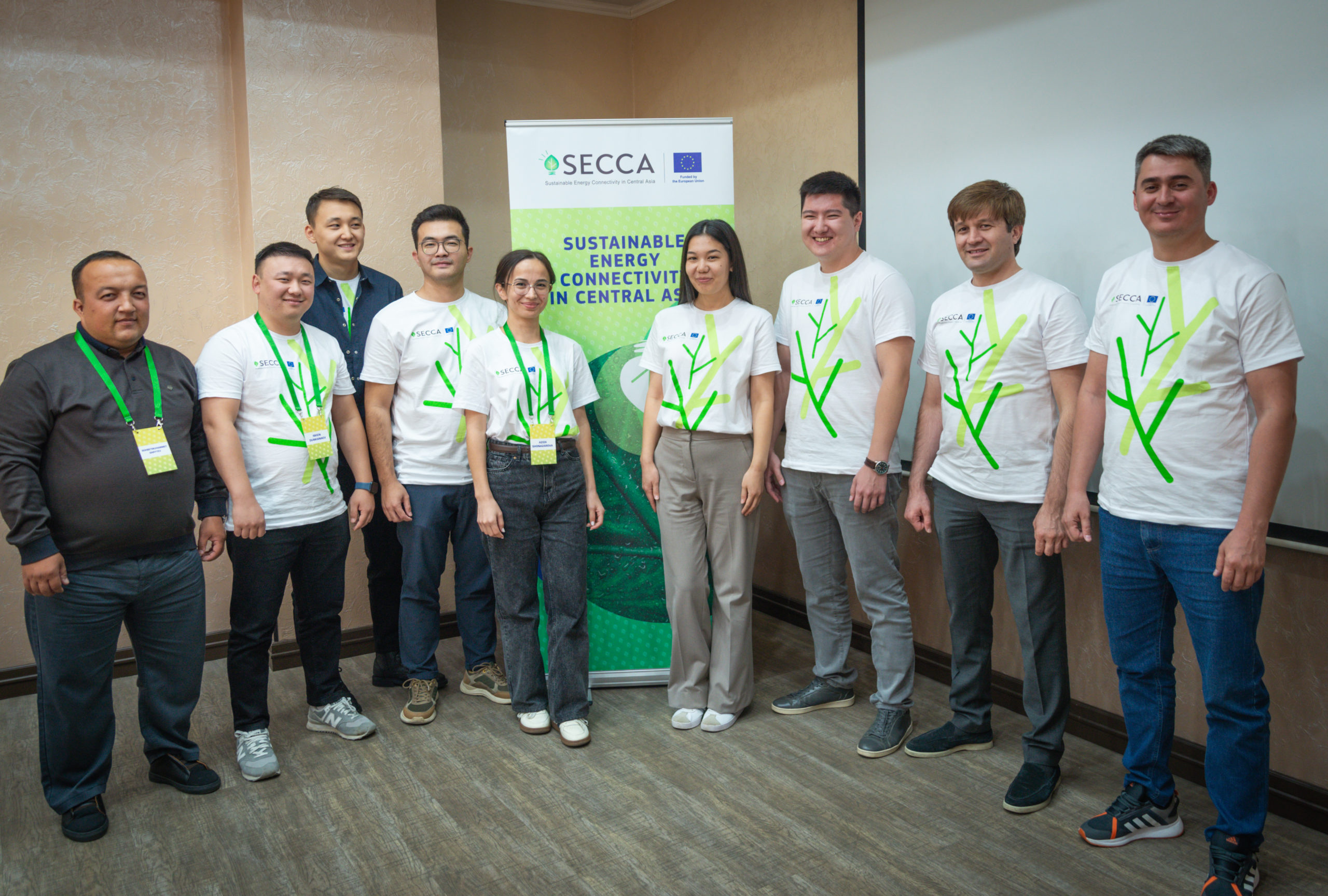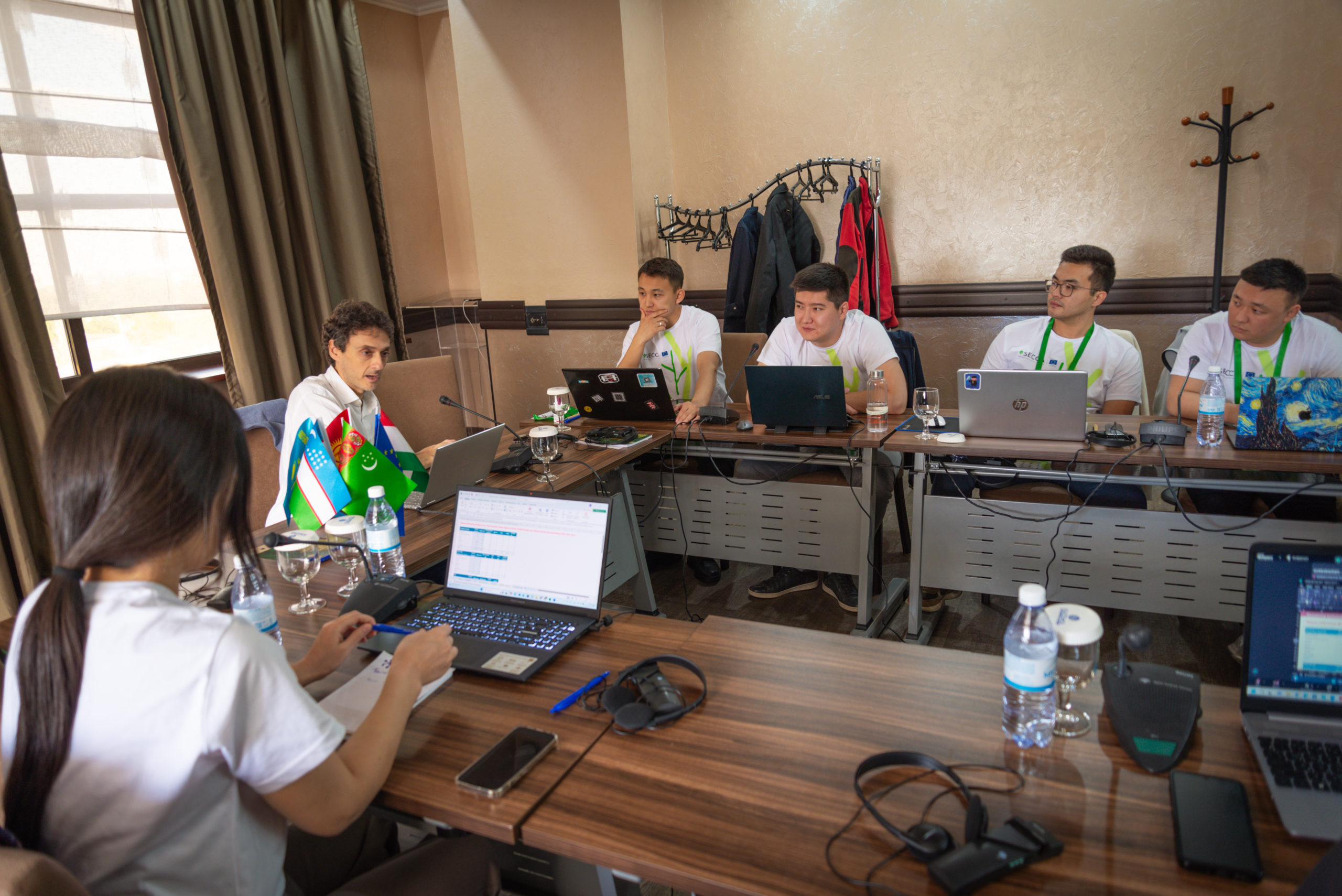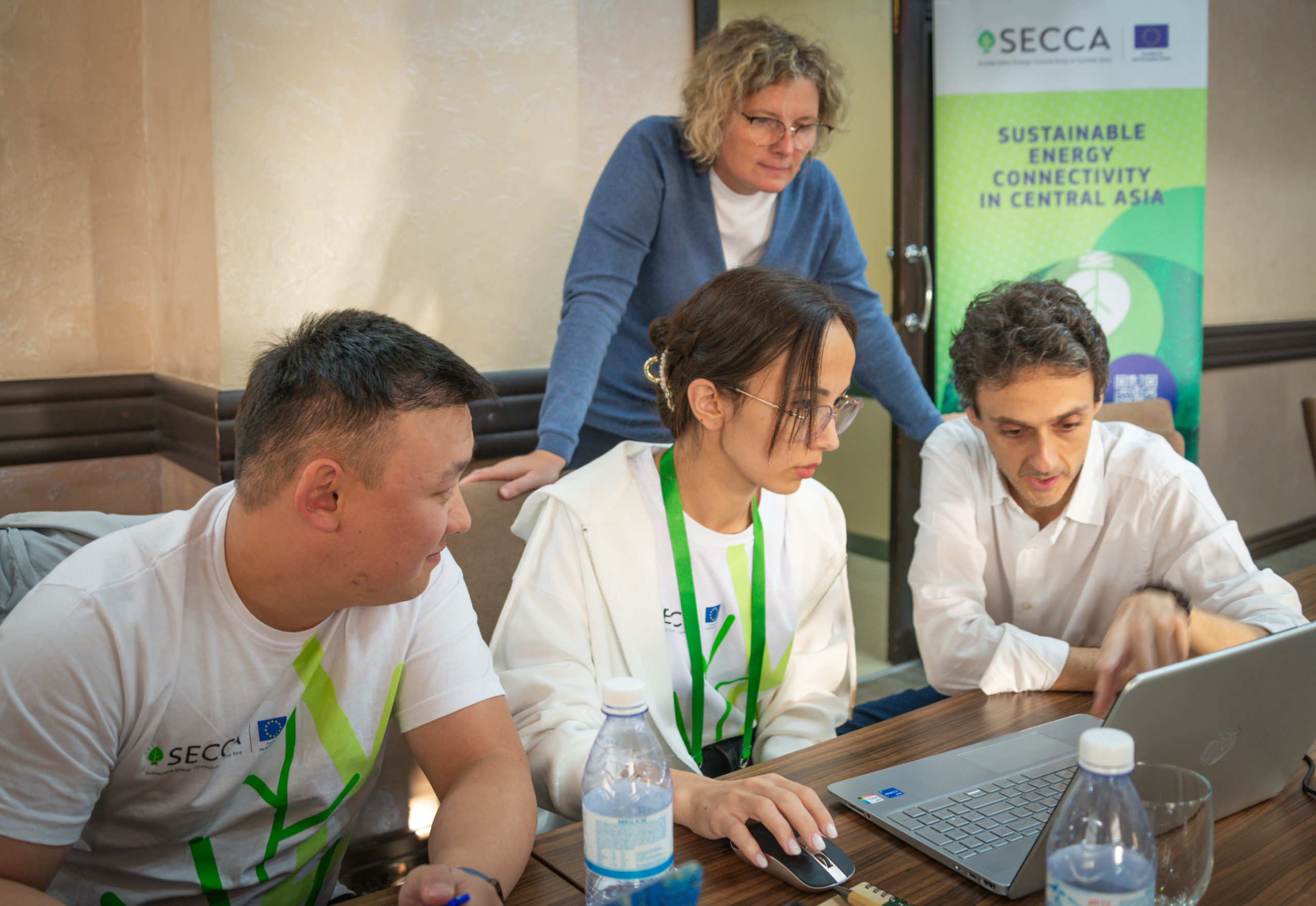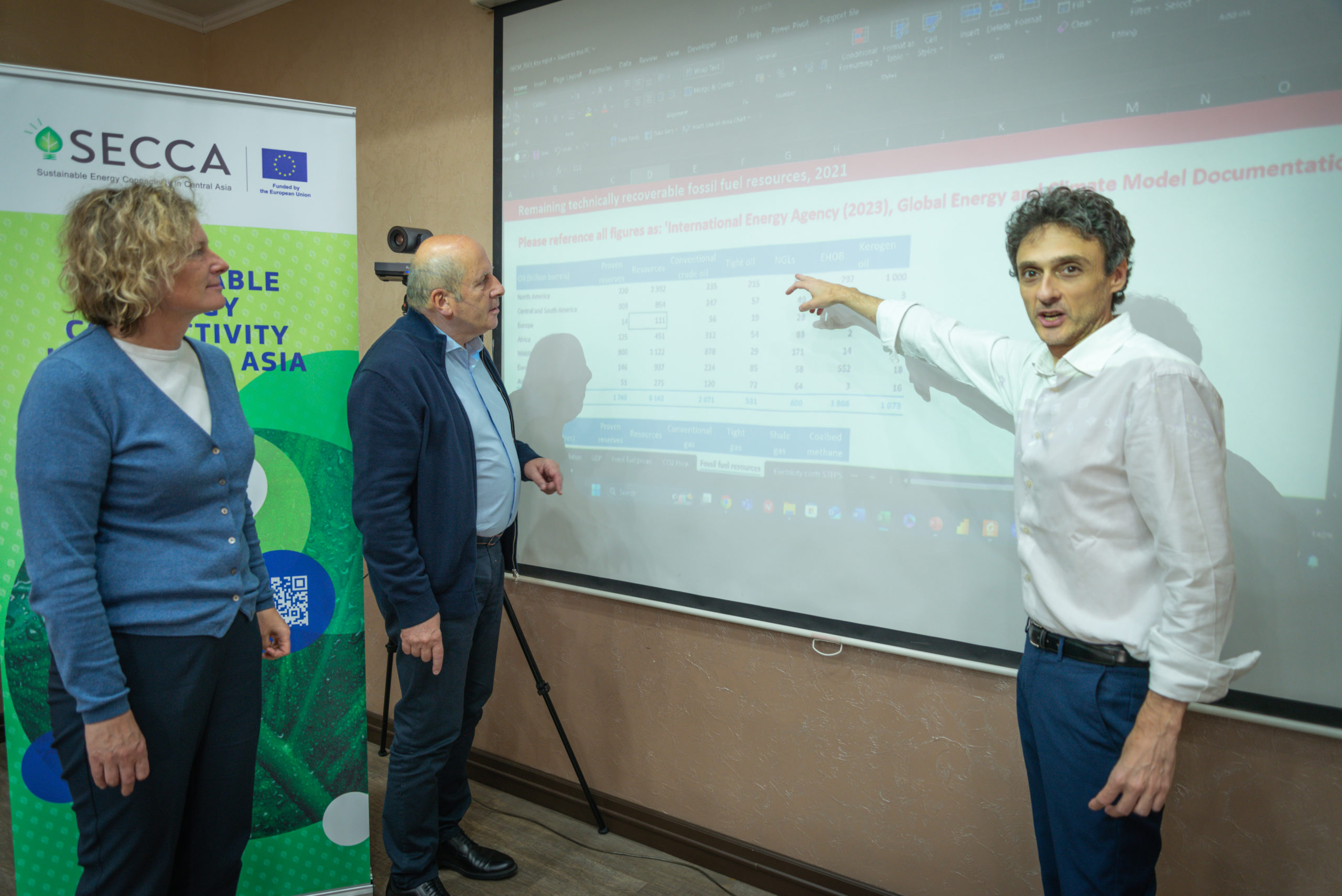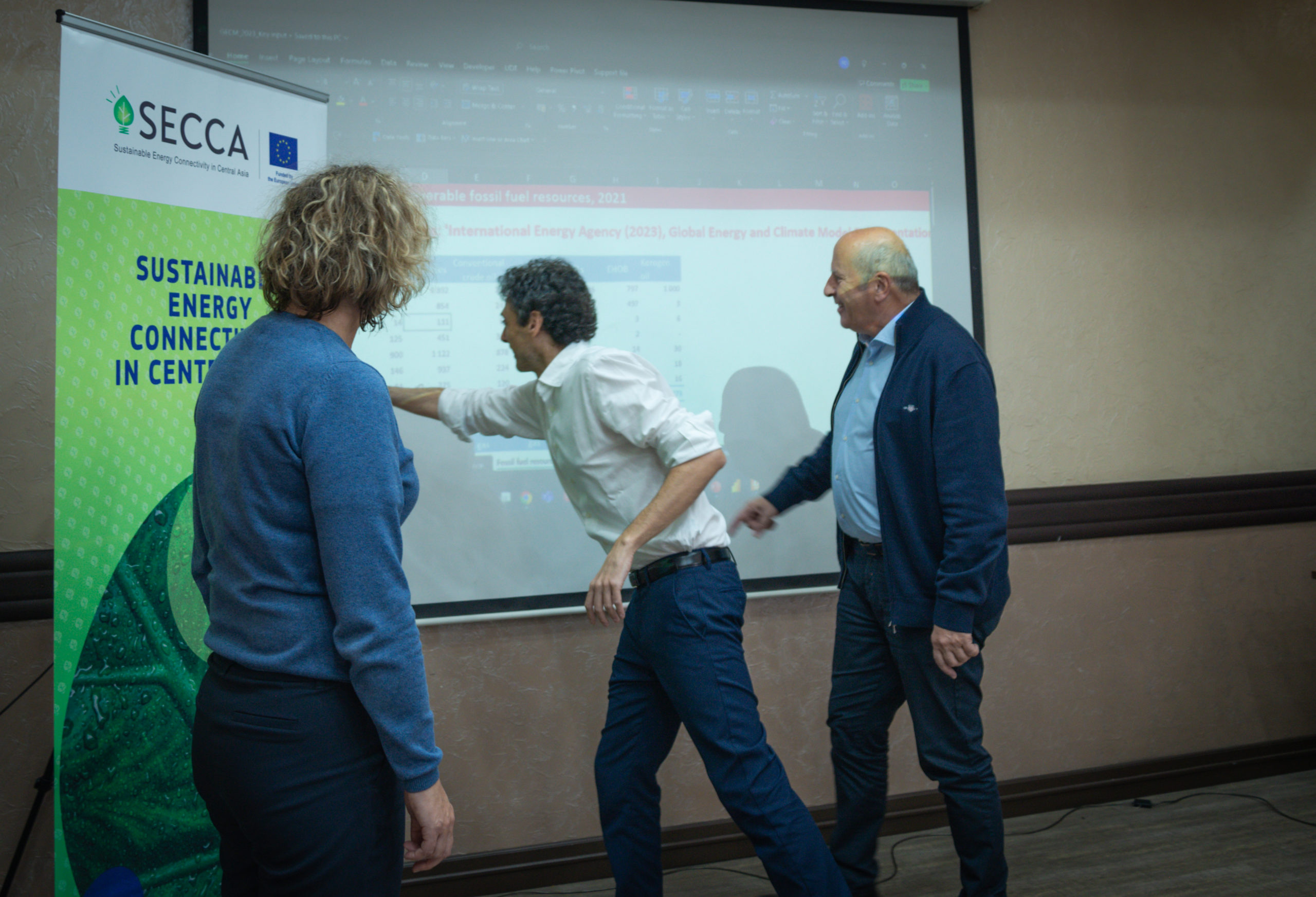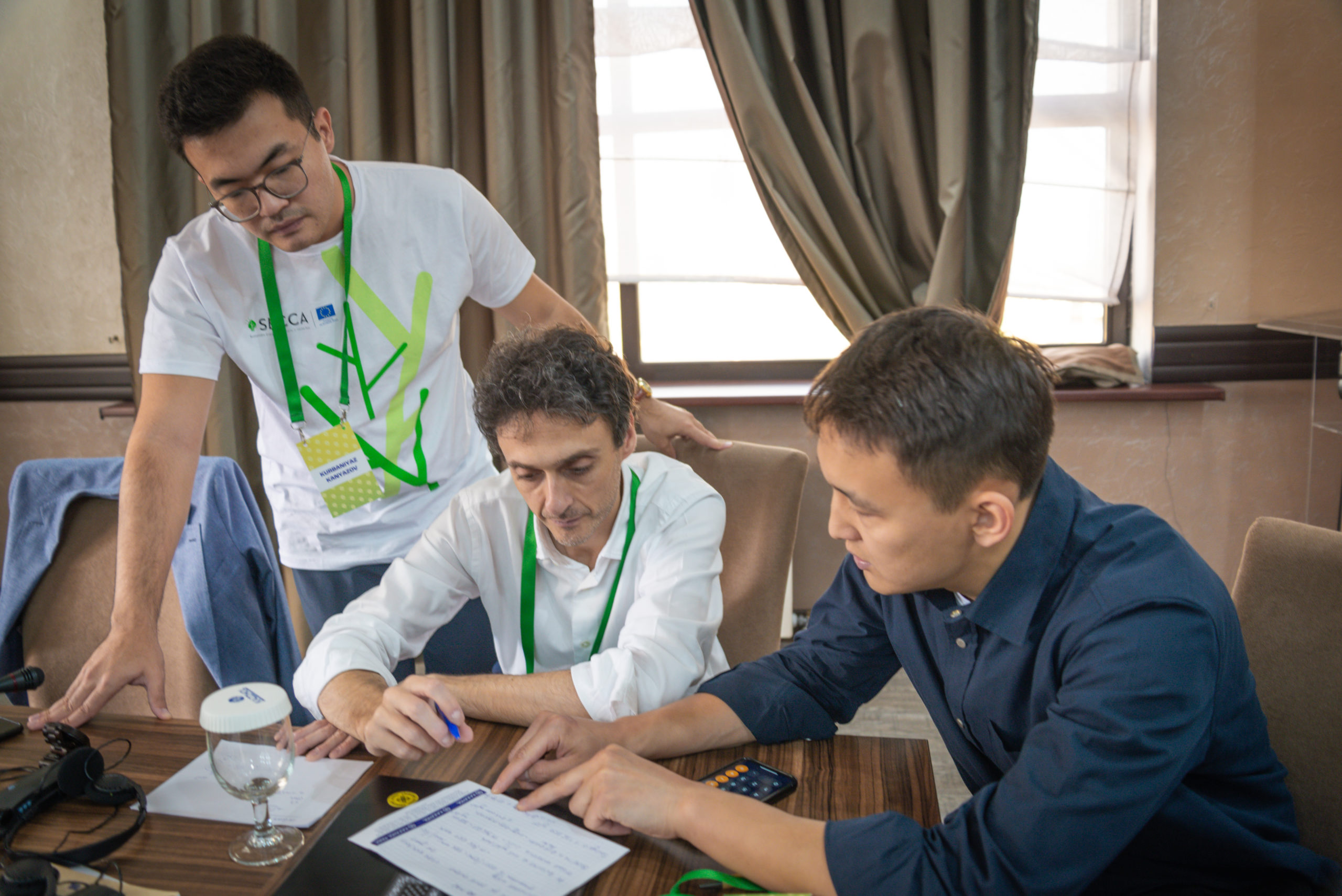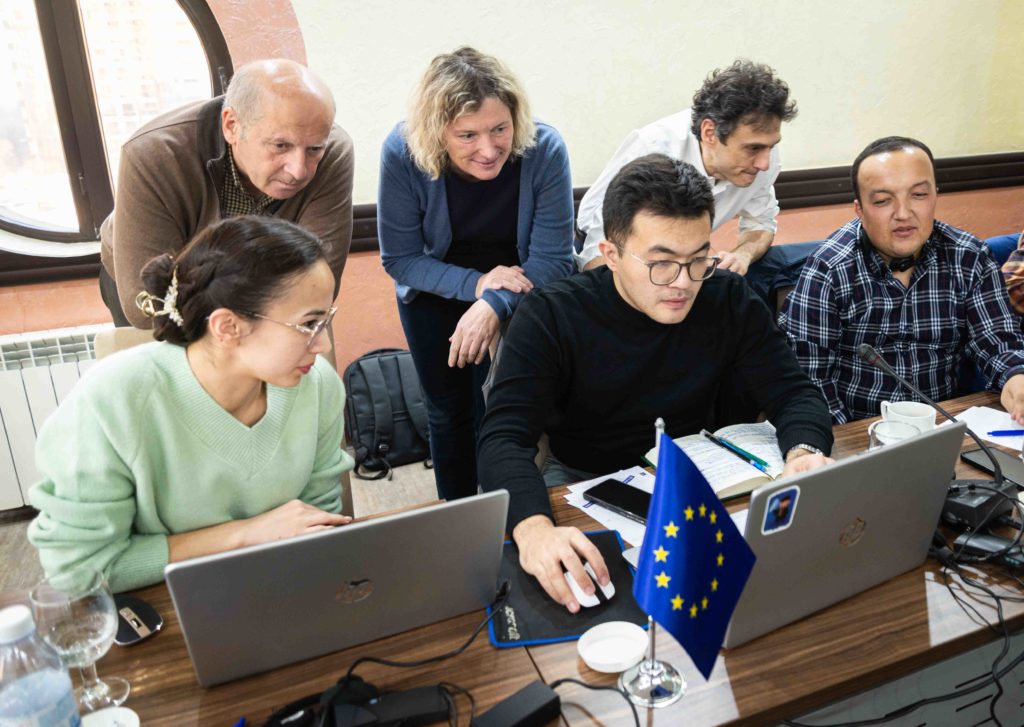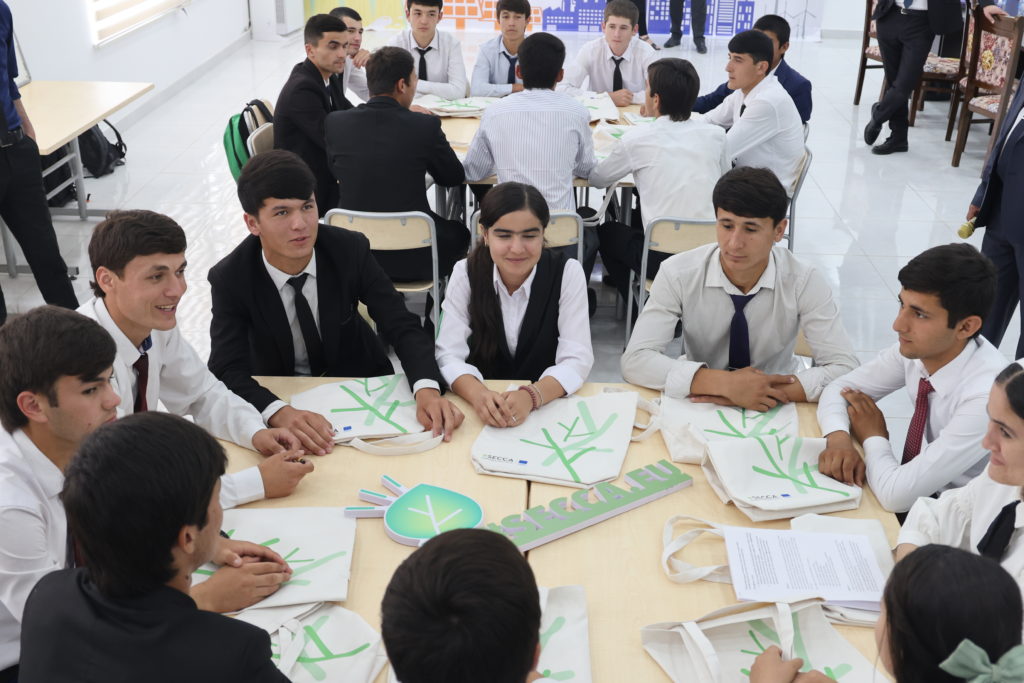Almaty, Kazakhstan – The first regional training on model-based energy and climate analysis organised by the European Union (EU) funded SECCA project took place on 24-27 September 2024. This event gathered young professionals from Central Asian countries to develop their skills in energy and climate strategic planning and modelling analyses. Participants were introduced to the fundamentals of energy modelling, which is crucial for shaping sustainable energy policies and responding to climate challenges.
A key aspect of this project initiative is to establish a Regional Group on Modelling consisting of two young professionals from each country to initiate country “modelling units”. The participants of this Group are specifically tasked to support the energy (and non-energy) data collection and analysis for quantitative model-based analyses, collect and interpret national energy and climate-related policies and factors, and provide feedback and ideas for the future developments of tools.
Mr Rocco De Miglio, SECCA Senior Modelling Expert, said: “This is part of SECCA’s broader effort to promote regional collaboration and knowledge sharing, as well as to improve local systems thinking and knowledge (data) based decision making in the energy and climate sectors. Generating practical impacts that go beyond the duration of the SECCA project is what we strive for by organising this and subsequent two more trainings for the regional group of young professionals. By the end of this project activity, the trainees will have a good understanding of the theoretical background of complex integrated energy and climate analyses, will be able to critically analyse model-based studies and reports and to formulate comments, and will be able to organise data and key factors for simple national and regional modelling exercises”.
During the training, the participants also learned about the EU’s main approaches to decarbonisation, as well as the EU Member States’ experience on preparation of and reporting under the National Energy and Climate Plan.
These regional trainings are a pivotal step in supporting strengthening of Central Asia’s response to climate change by empowering national experts to make informed decisions based on robust data and analysis.


